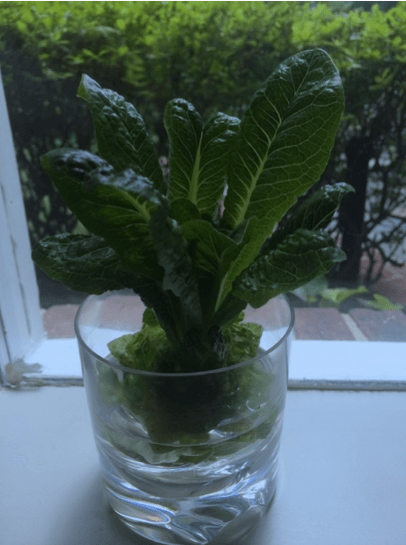Noticing Progress: Building Healthy Habits

Success is a process, and noticing growth requires us to pay attention.
I was recently researching habit formation, and flossing in particular. Struck by how common it is for people not to floss, I started thinking about how hard it is to do things that are good for us – especially when we can’t see the results right away. Could this be part of the reason why building habits, and flossing in particular, is so hard? That we give up when we can’t see the good we’re doing?
Perhaps. We do best when we can see the results all along, and flossing just doesn’t cut it. Our only benchmark is whether our dental hygienist gives us a good report. Few of us can see the positive results of flossing, despite evidence of it being a habit that can add up to 6 years to our life. Not easily seeing the fruits of our labor, or immediate rewards, it is easy to let it go. This is part of what makes habit formation so hard.
Ok. So you might be wondering about the plant picture. Would you believe it is romaine lettuce growing from the butt of a previous head? Crazy, right? I was doubtful when my husband plopped the lettuce end into a small cup of water, put it in the window, and announced to the family that it would (miraculously) grow another lettuce head. And for the first week, I was right – the lettuce butt sat lifeless in the window. No results, no growth. But then one day, we noticed there were sprouts – several of them – confirmation it had been growing all along. We just couldn’t see it.
And so it goes with so many efforts in life. We don’t always see the growth right away, even as it is happening all along. Not seeing success can tempt us to give up. We all know after all that time is valuable, and we need to be careful not to waste it on endeavors that don’t pay off in some way. Yes and no. Just because we can’t see results right away doesn’t mean they aren’t happening.
Our family lettuce experiment has been a powerful reminder that results almost always take time to see, time that requires sustained effort without noticeable reinforcement.
We don’t like this. Thanks to our dopamine system, we are motivated by rewards, making sustained effort without results so challenging. And rewards are important. Without them, and the results we want, we are wasting our precious efforts and need to adjust course.
But what if we could better pay attention to what is actually happening?
What if we could look more closely at the results, including the fun of the effort before recalibrating, or giving up.
Flossing. Exercise. Nutrition. Saving money. Summer projects. We all practice these efforts towards a future payoff, often in the absence of immediate results. And it isn’t easy. But if we look for the fun in the effort and measure our progress, rather than the ultimate goal (flossing without pain, seeing your money grow in your savings account, feeling your better energy with a healthier diet, feeling stronger in your workout), we can keep ourselves motivated.
Results are almost always there, if you look carefully enough. And the effort can almost always be fun if you are creative enough in your thinking about it.
This is how we build habits – through effort and practice. Every time you do something challenging or difficult for some future reward, notice that you are practicing (and getting better at) the skill of taking care of yourself – later.
Pay attention to the results, celebrate your progress, and pat yourself on the back. These are sometimes the only rewards we need to keep up healthy behaviors until we can see the payoffs for ourselves.
Looking for more help in increasing your own well-being ? Learn more about my book Hack Your Anxiety and access free tools to help you manage the fear and anxiety going around the world today.
Growing lettuce from a spent head! I love this reminder that something lovely can quietly grow (even when it is not obvious) from something we would otherwise discard.
One of the most agonizing decisions I face is when do I persevere and when do I throw in the towel and cut my losses. (Or “When do we throw out the lettuce butt?”) I am frequently reminding myself to track it, track it, track it. Then decide. Through effort and practice of this habit, I am slowly but surely getting a little better at the discernment process.
After I make the salad for dinner tonight, I may just stick the lettuce butt in a jar and make the same announcement to my family! What a great way to start a conversation with children! Thanks for the idea!
Mardi!
I agree it can be so hard to discern when to keep at it, and when to give up. And you are absolutely right, this takes practice. It can be so easy to be impatient with slower-than-we’d-like progress, and this is where realistic (rather than hopeful) expectations can be important.
And who needs this more than our kids, really? So hard in this day and age to be steady and patient. Love that you are going to challenge your lettuce butt later with your family. Let me know how it goes!